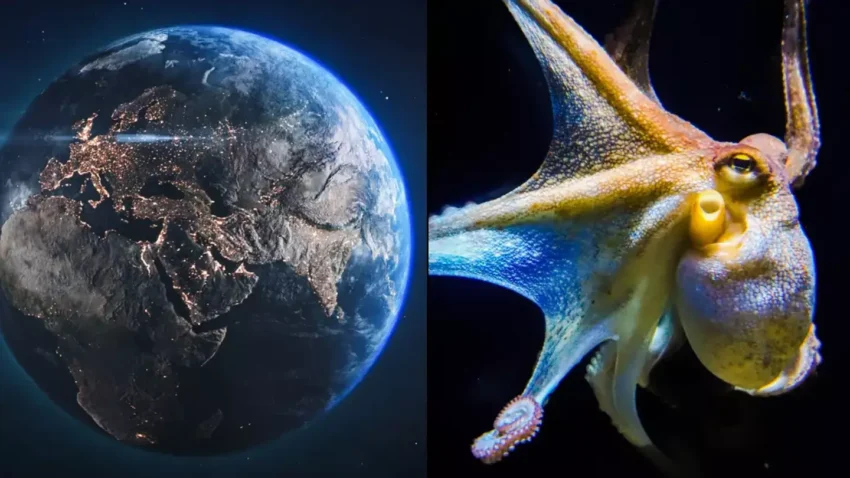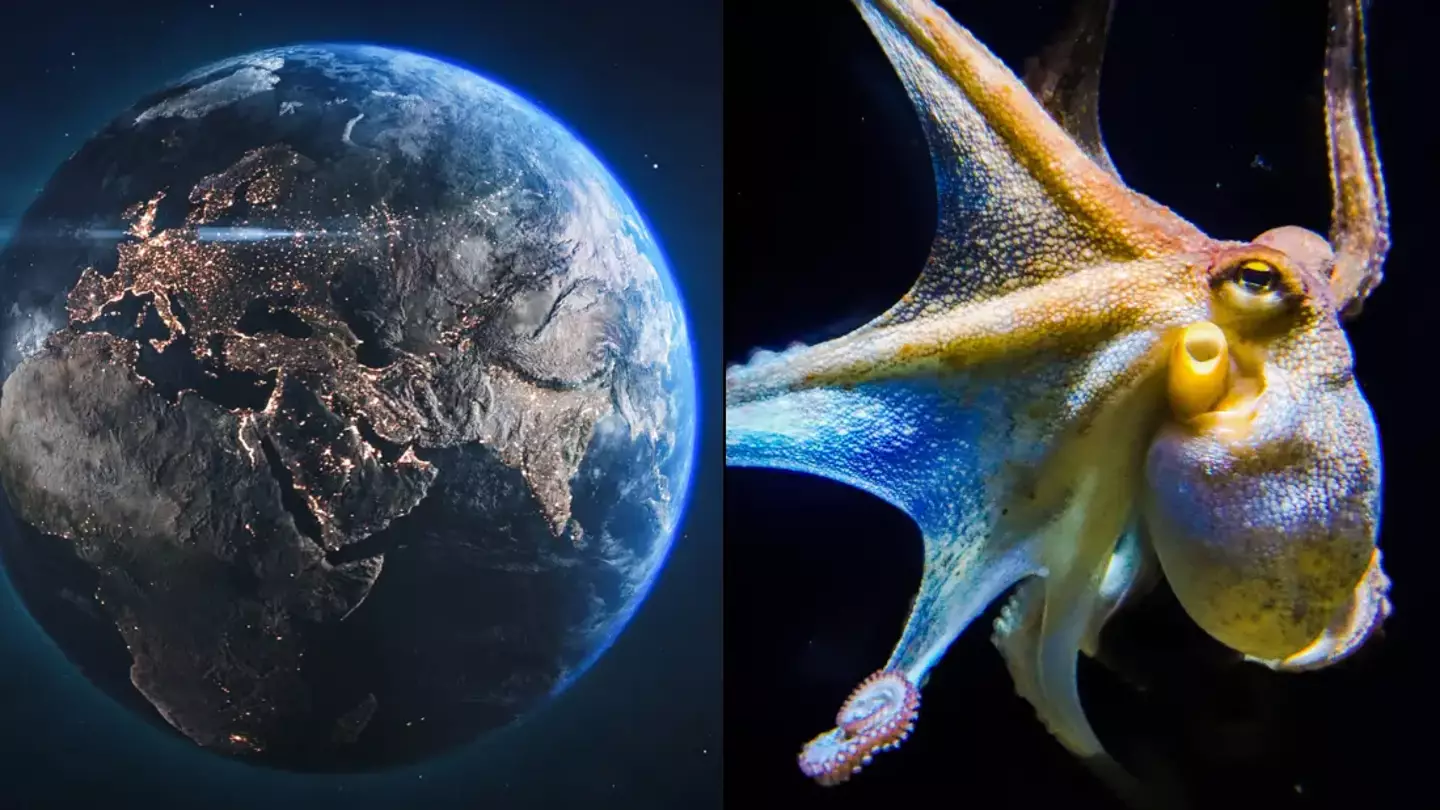
According to a scientist, you could actually expect the world to be ran by the eight tentacled creatures if we ever ceased to exist, and understandably, the reason is as mad as you’d expect.
While you might have thought that if a mass extinction event of the human race ever occurred, the first in line to the throne would be a species a bit more ferocious.
Lions, tigers and bears (oh, my!), but never an octopus.
Even though they say that cockroaches are actually the most durable species on earth, it doesn’t mean that they have the brain power in their little noggins to set up a working society.
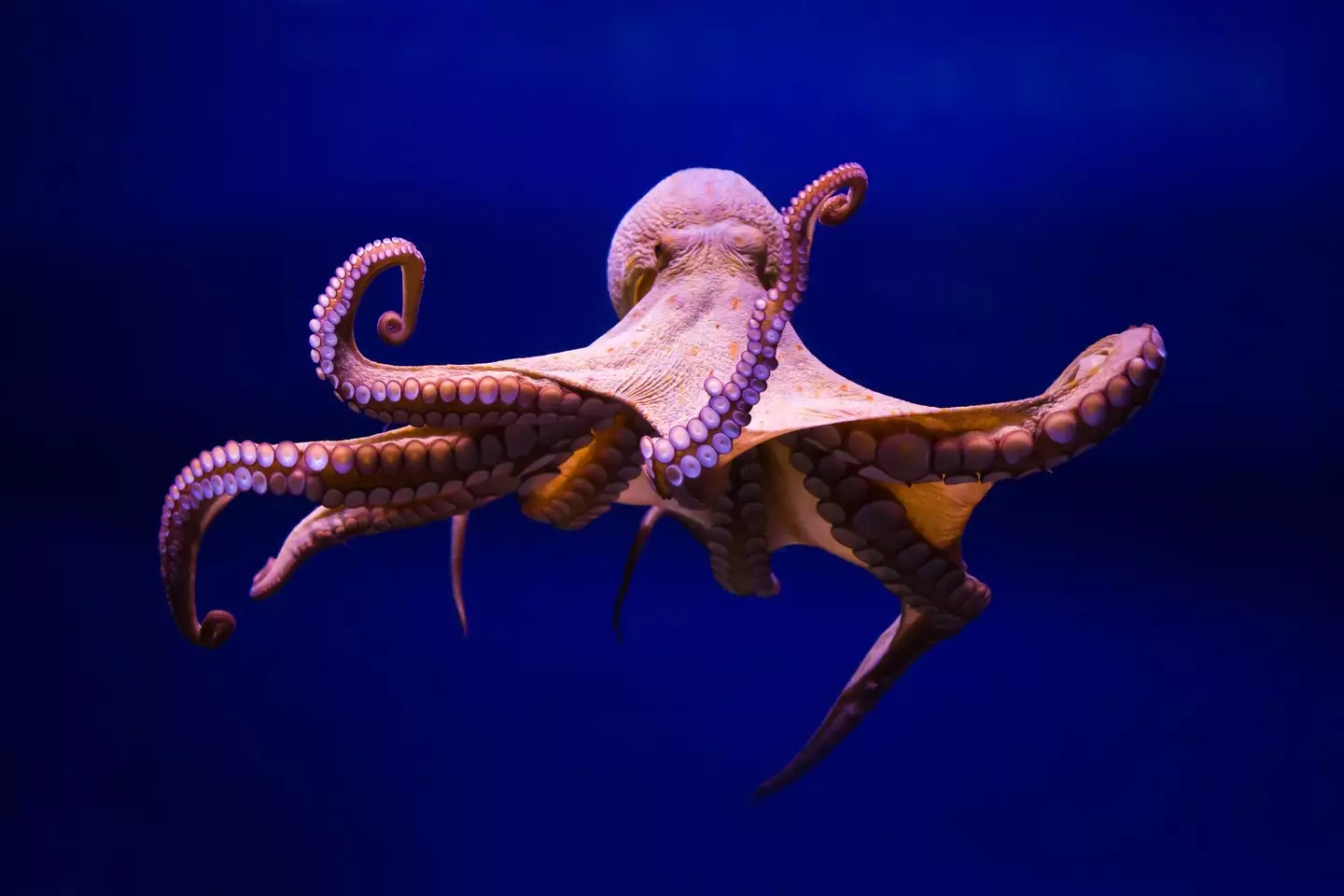
The world could be taken over by octopuses (Getty Stock Image)
Apes might also have been another contender as they’re so closely matched to us.
From their child-rearing, complex problem-solving skills and ability to even learn sign-language, surely, they’re our natural padawan?
Apparently not.
According to Professor Tim Coulson, from the University of Oxford, octopi have the key attributes to take over our role.
He explained to The European that the animal has the ‘dexterity and intelligence’ that ‘makes them a strong candidate to evolve to build civilisation’.
Professor Coulson said that it was this ability to solve complex problems and communicate with one another using flashes of colour, is why they are the ‘brains of the sea’ and perfect choice to take over.
This colour-changing ability is gnarly, yet effective to let others know what’s going down.

If humans died, octopuses would rule (Getty Stock Image)
Octopi use their eyes to see in the deep blue, but also to help map out what’s around it.
Only seeing in grey, its pupils distort light to estimate the idea of colour, which is then transmitted from its brain to the eight arms which then add colour from thousands of cells called chromatophores.
Each of these cells have a little sac filled with black, yellow, brown, red or orange pigment.
Under that are cells called iridophores which can reflect light back up through the octopi skin which make it look brighter.
As they don’t have blue or green pigment, they use the reflective iridophore cells to add mimic this and can even match the texture of things around it.
These colours can convey a lot, such as whether it feels threatened or if it’s trying to intimidate.
But what about taking over the land?
So, obviously they aren’t going to suddenly grow legs and slink out of their wet suits to be able to conquer anything above water.
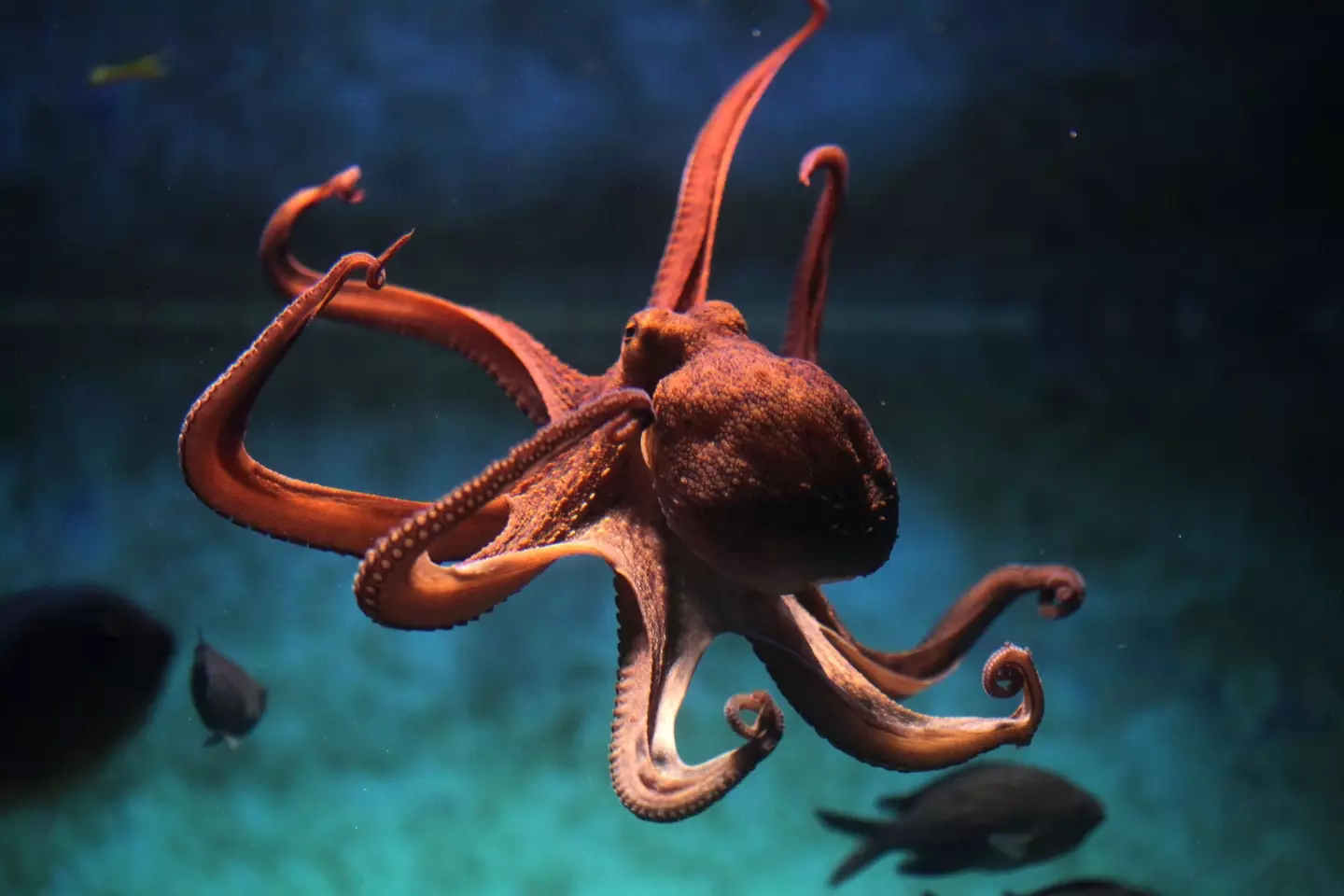
They have the key attributes (Getty Stock Image)
However, they could instead ‘construct underwater communities resembling cities we see on land’.
He also thinks they could evolve to hunt on land too as they can survive 30 minutes outside of water.
He explained that it’s like how humans learned how to fish and said: “It may take them hundreds of thousands or even millions of years to evolve to do this.”
But as they only live between one and five years, they can’t really afford the time it takes to learn such a task.
Professor Coulson added: “With evolutionary advances, it is possible, if not probable, that they might develop ways to breathe outside of water and eventually hunt terrestrial animals like deer, sheep, and other mammals – assuming they have survived the catastrophic event that drove humans extinct.”
He said: “Of course, the rise of the octopuses is all speculative: evolution is unpredictable, and we can’t say with certainty what path it will take in the event of human extinction.
“Random mutations, unforeseen extinction events, and population bottlenecks can all significantly influence the trajectory of evolution, making it challenging to determine whether another species will develop human-level intelligence or the inclination to construct cities.”
Featured Image Credit: Getty Stock Images
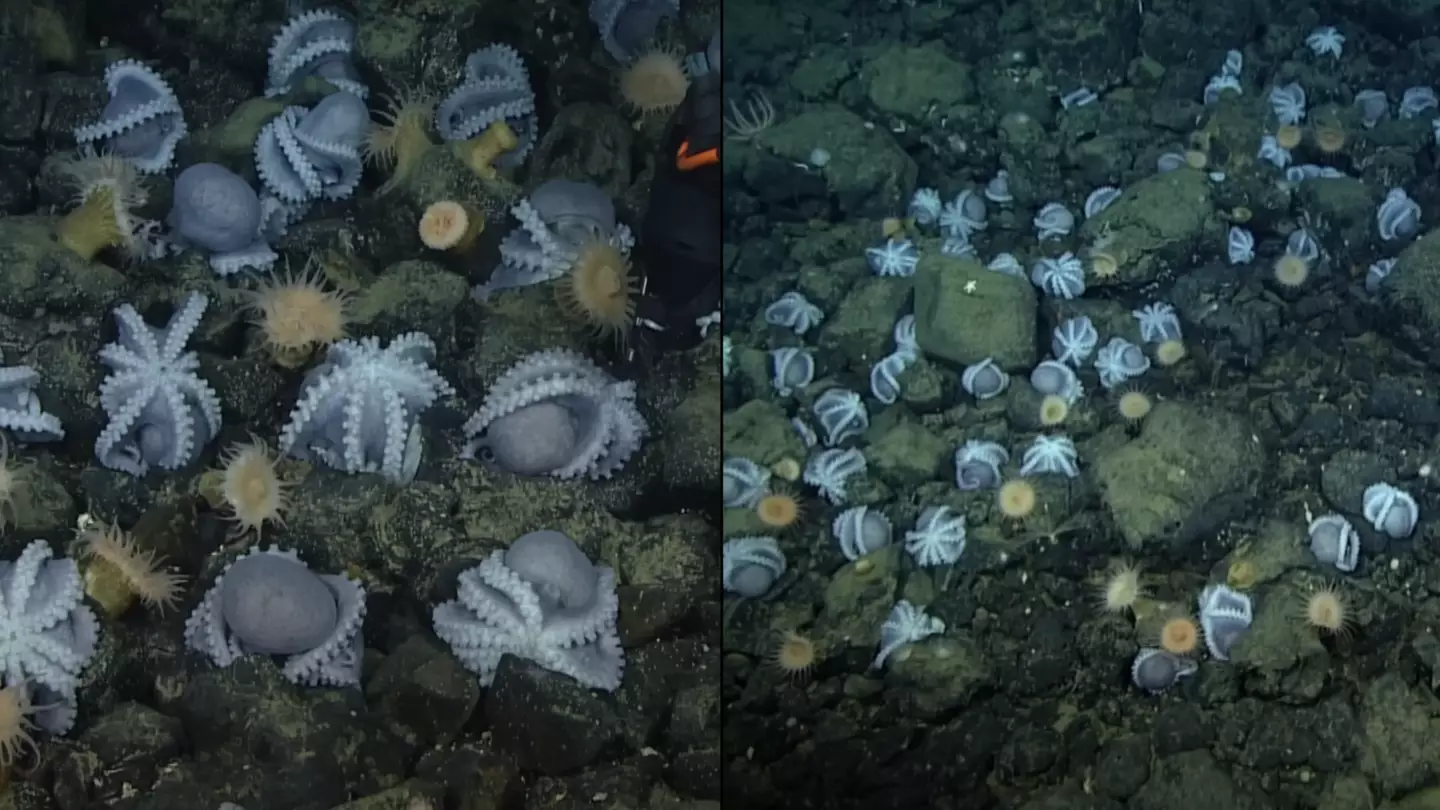
Around 20,000 octopuses travel to an area, which is located two miles below the Pacific Ocean to mate, raise babies and then die.
The location is around 80 miles west of Monterey, California, US and is known as the ‘Octopus Garden’.
The reason for octopuses travelling there has been a mystery, but a study found exactly why they choose that spot.
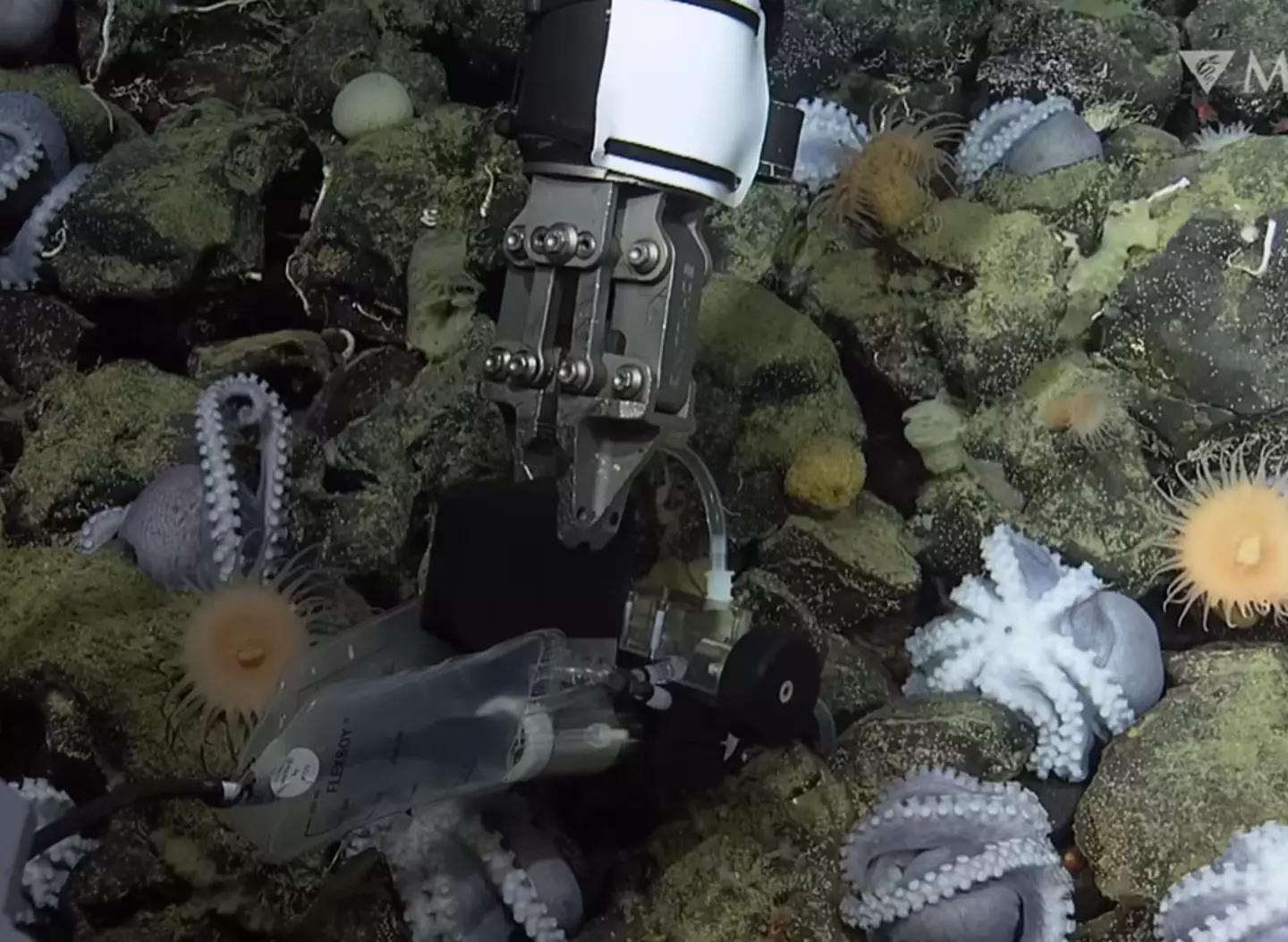
A team found out why octopuses gather in the ‘Octopus Garden’. (MBARI/YouTube)
According to a team led by Jim Barry, senior scientist at the Monterey Bay Aquarium Research Institute (MBARI), the area has warm water that accelerates the growth of octopus embryos.
This warm water aids in keeping their kind alive.
According to the report, it takes females about 1.8 years to brood their young, which is a lot faster than any other area octopuses live.
The study explained that ‘localized deep-sea heat sources may be essential to octopuses and other warm-tolerant species’ and that ‘most of these unique and often cryptic habitats remain undiscovered and unexplored.’
The study, posted to Science Advances, found that the warm waters provide a metabolic boost that shortens the brood period for pearl octopuses.
Barry said in a call with Motherboard: “We’ve found octopus nurseries here and there, where you might find lots of octopus living on rock walls and laying their eggs, but this was way more than we’d ever seen before.
“Normally, ‘a lot’ would be hundreds. This is thousands and it’s associated with these thermal springs, which is a new twist to the entire deep-sea ecology.”
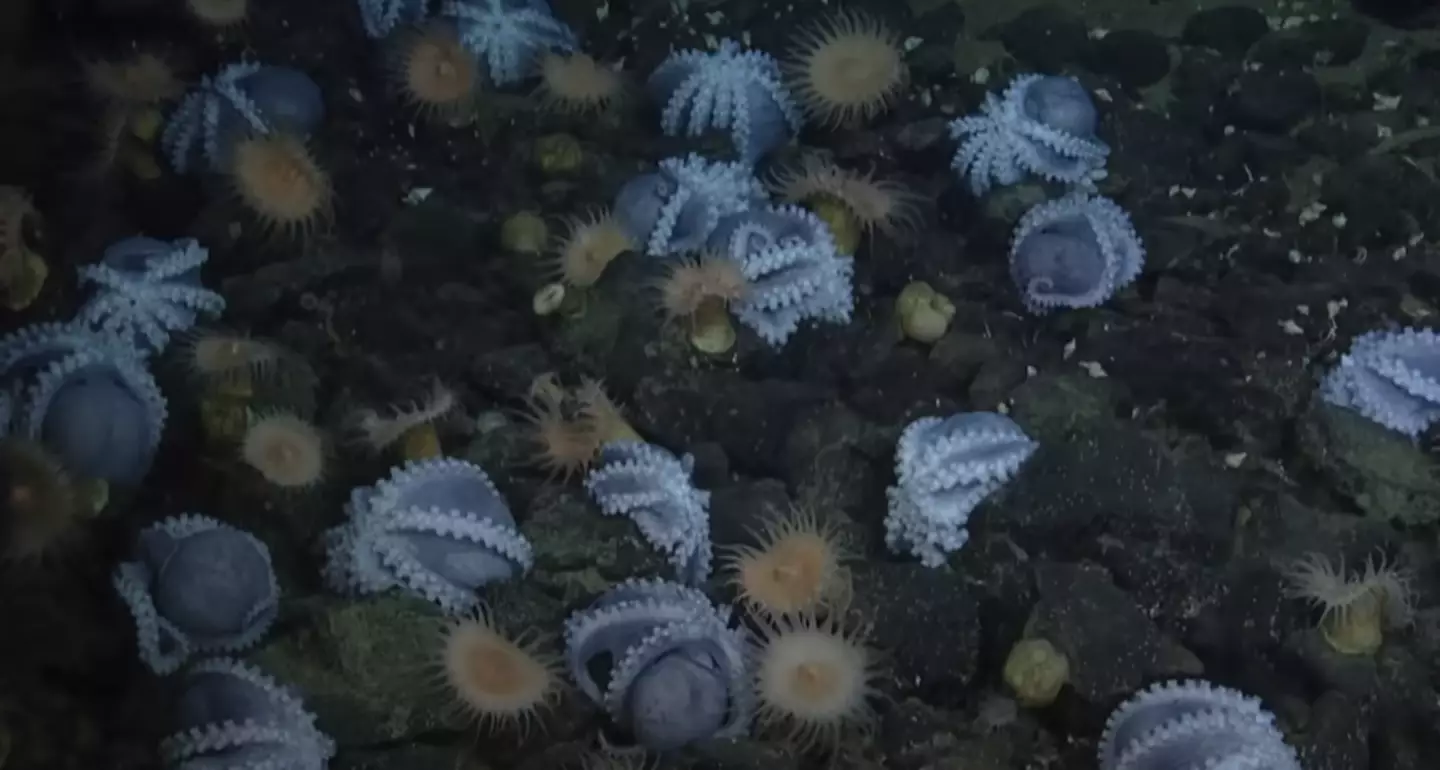
The octopuses travel, brood and die there. (MBARI/YouTube)
The team spent years exploring the Octopus Garden with an MBARI’s remotely operated vehicle (ROV) Doc Ricketts, to dive down 14 times within 3 years.
The ROV used a time lapse to snap a shot every 20 minutes from March to August 2022 to figure out what the octopuses did in the area.
According to the team, the location is full of brooding females, dead corpses, and vulnerable eggs and hatchlings.
The site’s thermal springs saw the females settle around its warmth to utilise its accelerating properties.
This is because the site reaches temperatures of about 11°C, which is nearly 10 times higher than regular deep-sea temperatures of 1.6°C.
Barry said: “You can have a vast reproductive improvement by shortening that brood period.
“We think that’s really important for species that live in deep waters near very cold temperatures, so maybe that’s the big advantage that we see for this octopus.”
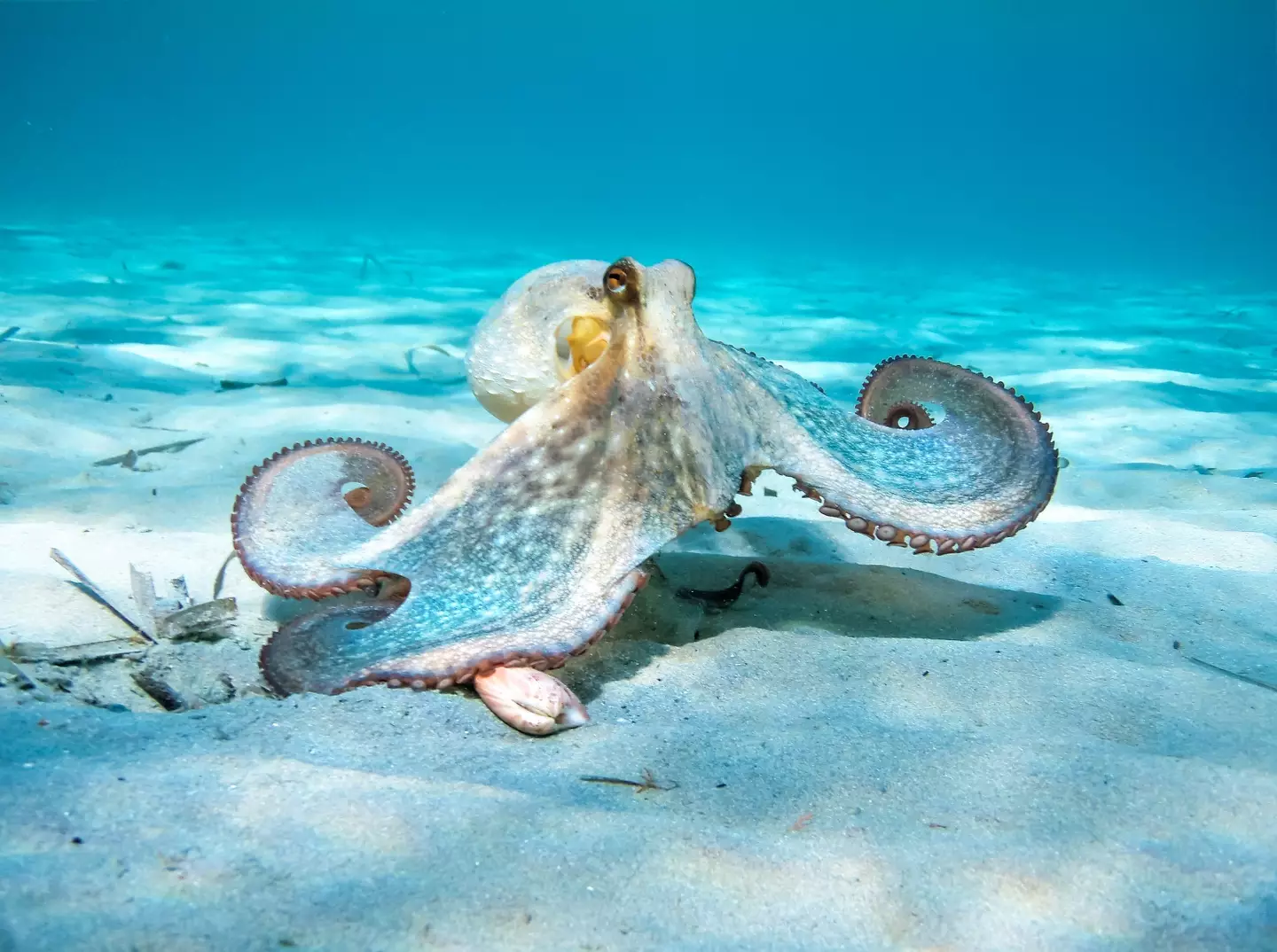
The site reaches much higher temperatures than regular deep-sea climates. (Getty Stock Image)
He added: “We don’t know enough about the deep sea yet.
“We need to know more about it so that we can identify those areas that are really critical—not just for octopus necessarily, but for all the species involved in the ecosystem in the area. We can use that information to make more rational judgments about how we should manage these resources.
“Not to mention, it just inspires us all because it enriches our lives to know that there are these really cool things in the world and we can appreciate them for their intrinsic value.
“That’s part of it, too.”
Featured Image Credit: MBARI
